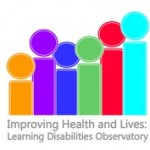
We have posted previously about issues relating to cancer screening in people with learning disabilities and the impact this has on early identification of signs and symptoms and consequent timely treatment.
The researchers from the improving health and lives learning disabilities public health observatory (LDPHO) were interested to know whether reasonable adjustments were being made to the three national screening programmes (breast screening, cervical screening and bowel screening) to ensure that people with learning disabilities had equal access, as set out in the Equality Act 2010 and the NHS and Social Care Act 2008 In addition to changes to the physical environment to make premises accessible, the duty also extends to making changes to policies, procedures, staff training and service delivery
The report, based on work of the Cornwall Cancer Screening Team, uses their experience to talk about reasonable adjustments in place to increase access to screening by people with learning disabilities.
The PCT in Cornwall carried out an audit looking at unmet healthcare need, the level of service provision and level of partnership working. They found a low uptake of cervical and breast screening among women with a learning disability (bowel screening was not covered in the audit) and as a result made a number of recommendations:
- GPs and practice staff to work with the Lead Public Health Consultant and other partners to improve uptake;
- Primary Care Liaison Nurses to work across public health, primary care and secondary care to facilitate access to screening and establish additional/different support and preparation requirements to enable women with severe learning disabilities to access cervical and breast screening programmes.
As a result of this local experience, the LDPHO going to put forward recommendations to the national cancer screening programmes regarding the identification of people with learning disabilities in NHS Cancer Screening databases, to enable reasonable adjustments to be put in place
The report covers issues relating to consent and capacity and in particular the operation of the mental capacity act in this area. It also raises questions for local services to enable them to identify whether or not their approaches are making a difference. A key question here is whether or not the invitation to screening is fit for purpose, and the impact this has on the numbers of people with learning disabilities screened in the area.
The authors point out that there are significant difficulties in answering this question. They identified one Strategic Health Authority had figures from 60% of PCTs for the number of people with learning disability who had had cervical or breast screening, and 50% who had had bowel cancer screening. Two PCTs in the area reported zero figures for breast screening and four reported zero figures for bowel cancer screening. The authors point out that if these figures reflect the reality of screening in those localities, then the PCTs have a duty to act and commissioners must also act to establish a good monitoring system for access to screening.
The report also had a section for resources, focusing on general information on cancer and links to specific resources on breast screening, cervical screening and bowel screening.
You can read the full report here: Making Reasonable Adjustments to Cancer Screening, Turner S et al., Improving Health and Lives, Learning Disability Public Health Observatory

Thank you for covering this – but please note, it was the PCT that carried out the audit, not the LDPHO
Hi Sue,
thanks for your comment. I have noted your correction and made the necessary changes to the blog entry,
John
This is true. My son has learning disability. It is very difficult to get their consent to do any activities. He is very scared about medical procedures. Bowel, breast and cervical screening programmes need to get adjusted according the needs of learning disabled groups. This pattern may be true for other areas as well.
Hi,
thanks for sharing your experience. I wonder if you have seen the GMC site? It follows a young woman with learning disabilities through the NHS system. It’s at http://www.gmc-uk.org/learningdisabilities/
john